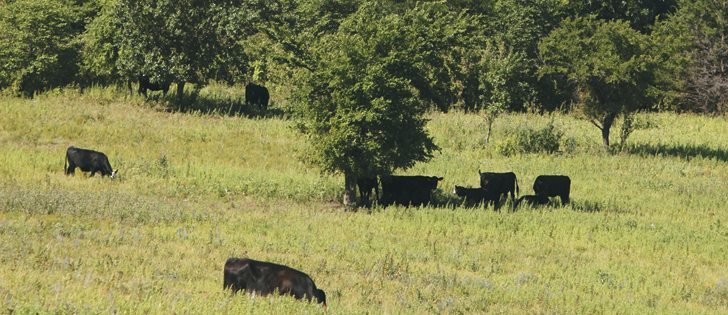“Sustainable” is currently the most over-used and misused word in the English language. Everybody uses it, but there is no agreement as to what it means.
The only thing you can be sure of is that being unsustainable is not good.
It has long been green dogma that modern agriculture is not sustainable. Terms such as monoculture, factory farming and industrial agriculture are used in a derogatory sense to reinforce that view.
My preferred definition of the word comes from former Norwegian prime minister Gro Harlem Brundtland, who said: “Sustainable development is development that meets the needs of the present without compromising the ability of future generations to meet their own needs.”
Read Also

High prices see cow-calf producers rushing to incorporate
Farm accountants are reporting a steady stream of cow-calf producers rushing to get their operations incorporated ahead of selling their calves this fall.
Based on that definition, modern agriculture is not only sustainable now but more sustainable than it has ever been.
Here in Australia, we are often told that anything done by humans to change the environment is evidence in itself of unsustainability.
The key assumption behind the term “wilderness” is the absence of human impact, or at least of white Europeans.
That thinking is less common elsewhere. In Ireland, a farm owner recently described evidence of human settlement in the area going back 5,000 years.
He also said that his farm, which has been in the family for generations, could run 20 cattle in the 1920s, 50 in the 1950s, 100 at the turn of the century and was now up to 120. He expects it to be running 150 within a decade.
Allowing for a bit of rounding, it is pretty obvious the farm has not only been capable of providing for its past and current owners, but will continue to do so for future generations (in this case the farmer’s children) as well.
In other words, it has long been sustainable and is sustainable now.
What’s more, it is the use of modern technology, so despised by the green dogmatists, that makes this possible.
Vaccines (some the product of genetic modification) and chemicals help keep the cattle healthy. Pasture management using hybrid seeds and chemical fertilizer means there is enough food for the cattle.
High tech nutritional supplements ensure they receive a balanced diet. Advanced artificial breeding technology means cows produce a calf each year, the calves grow faster than ever before and there are more heifer than bull calves on dairy farms.
For agriculture to remain sustainable, it needs more of this. It will be modern technology, not a return to the last century or beyond, that ensures our soil and water are preserved.
For example, GM crops and pasture plants are not only fundamental to raising the nutritional value of pasture but combatting desertification and drought.
What’s needed in Australia is recognition that human impact on the environment is not only unavoidable but mostly highly positive.
Moreover, the concept of virgin wilderness untouched by humans should be exposed for the lie that it is.
Large areas of the planet that today look like virgin forests were once farms. That includes much of the Amazon, which is actually forest regrowth growing in man-made “dark earths,” which archaeologists believe were created by pre-Columbian farmers who added organic wastes and charcoal to improve nutrient supply and boost yields. It is a similar story in forests of West Africa and Borneo.
Ecosystems have always been in a constant state of flux, and humans have always left their mark. Nature is resilient and adaptable. In 1,000 years, the farms of today will be producing far more food and fibre they do now. That’s sustainable.
David Leyonhjelm has been an agribusiness consultant in Australia for 25 years. He may be contacted at reclaimfreedom@gmailcom. This article has been edited for length.















